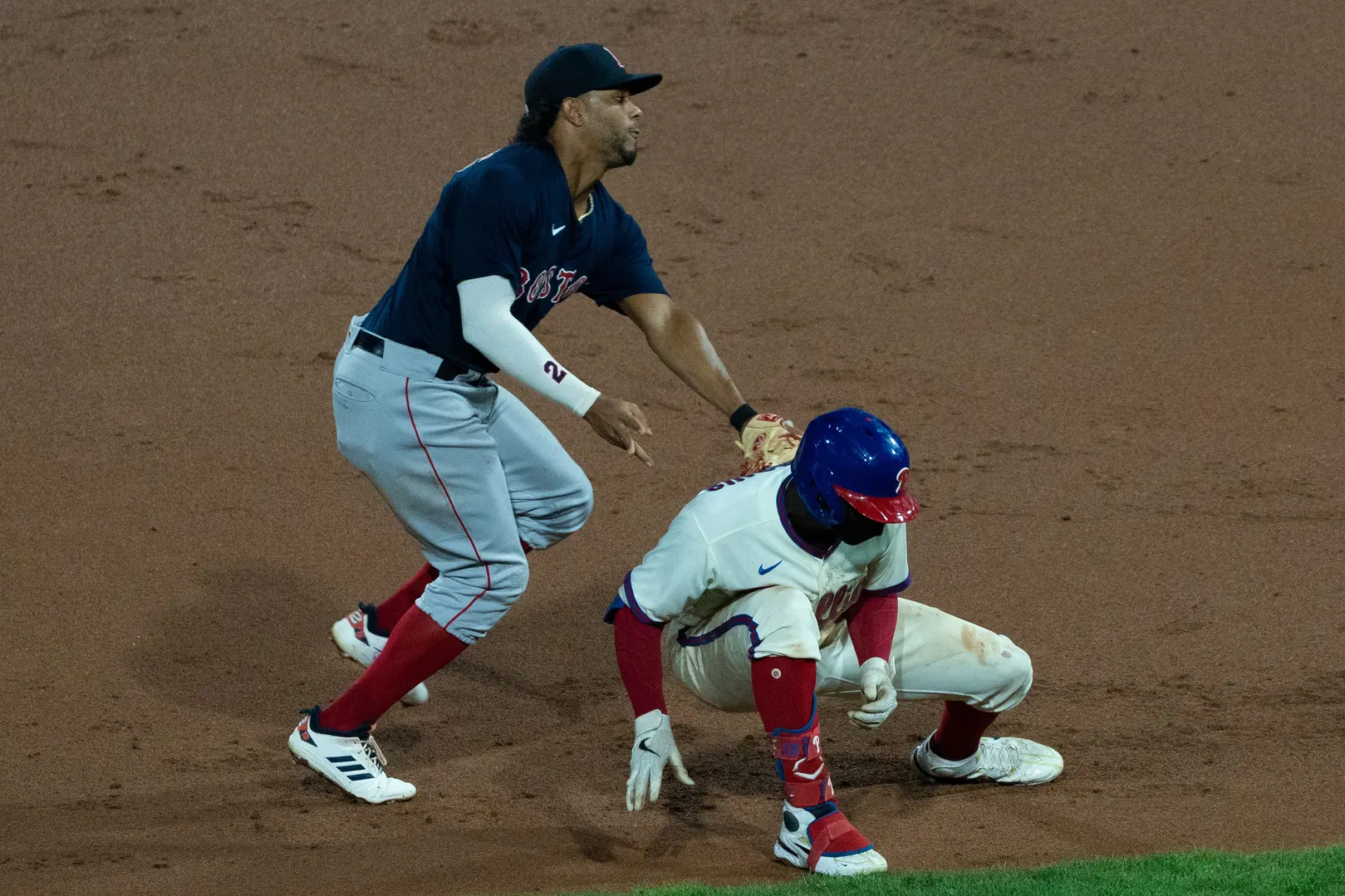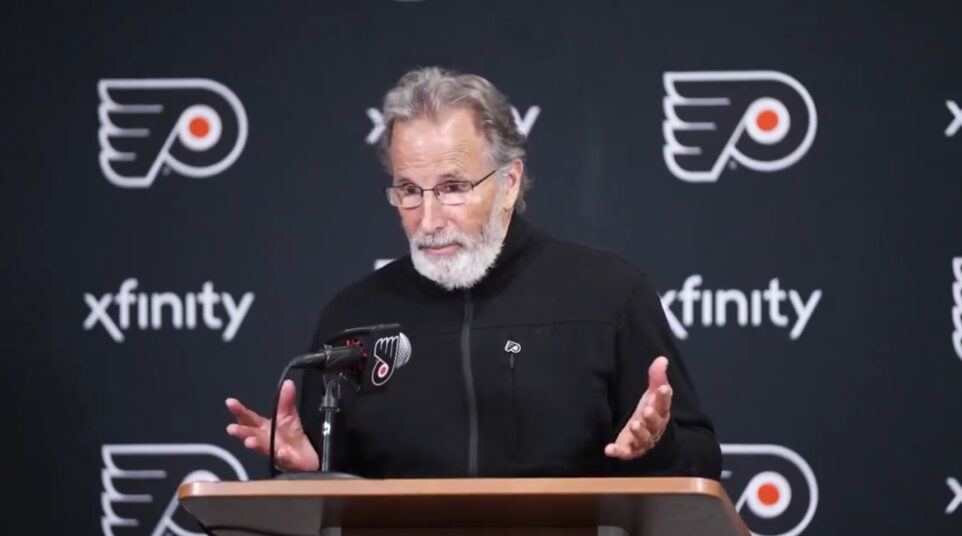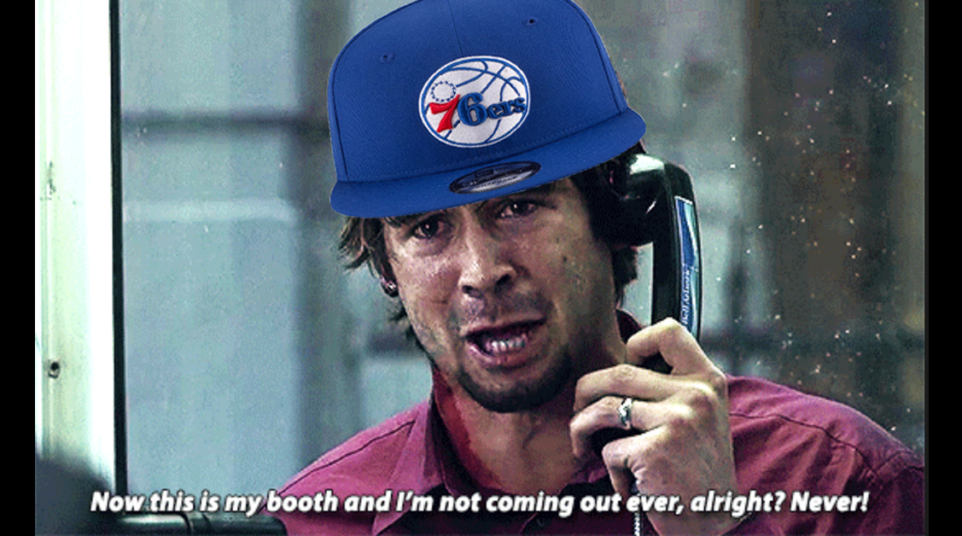
Phils Can't Overcome Sloppy Play, Brutal Bullpen in Game Two Loss
It’s never going to be easy with the 2020 Phillies. This reality must be accepted as you follow this team’s final 21 games of the regular season.
Even if you think the next time might actually, finally be the time it’s easy, it won’t be. I assure you. Please heed my advice.
- Don’t be surprised when the bullpen blows a six-run lead. Don’t be surprised when it can’t hold a one-run lead.
- Don’t be surprised when the Phillies make a questionable base running mistake.
- Don’t be surprised when they occasionally kick the ball around the infield like a JV squad here and there.
However, don’t be surprised when they sometimes overcome all of the ways in which they drive you insane to win. Offensive talent, some decent starting pitching, and a little bit of heart can overcome these inconvenient deficiencies.
They were able to make it happen in game one. In game two, well, it’s a big ask for a team to get off the mat for a third straight game after what is, without hyperbole, just an atrocious bullpen delivered yet another late-inning kick in the gut.
The latest blow, courtesy of newcomer David Phelps:
That Bobby Dalbec power we'd been hearing about… It's real. pic.twitter.com/Hnfl64Clcc
— Red Sox (@RedSox) September 9, 2020
General manager Matt Klentak’s big bullpen trade acquisition allowed all three Red Sox hitters he faced to reach base. In three appearances with the Phillies, Phelps has allowed five earned runs and three homers in just 2.1 IP.
In fact, according to Jonny Heller of Phillies Nation, the “reinforcements” acquired in a series of trades last month have allowed 18 earned runs in 21 1/3 IP since arriving. That’s (not) good for a 7.59 ERA.
When Heath Hembree allowed an insurance run to his former club in the seventh that made it 5-2, the unit accomplished this special feat:
That was the 100th earned run the #Phillies bullpen has allowed this season. It holds a 7.24 ERA after 39 games.
Insane.
— Bob Wankel (@BobWankelCB) September 9, 2020
Of course, the latest turd plopped on the mound of Citizens Bank Park by the team’s relievers overshadowed an admirable effort from Vince Velasquez. The former starter-turned-kind-of-reliever-turned-starter delivered five solid innings of two-run baseball despite making just his second appearance in 19 days.
However, at 90 pitches through five innings, Joe Girardi was forced to turn to his bullpen. Predictable disappointment ensued.
Things Were Going So Well…
For an inning in the second game of Tuesday’s doubleheader, it looked like a cooked Red Sox team was on the verge of packing it in.
With runners on the corners and two away, Boston starter Chris Mazza uncorked a wild pitch that plated Rhys Hoskins for the game’s first run. Didi Gregorius would single to score Realmuto before he aggressively (and needlessly) ran into the final out of the inning.
…And Then They Weren’t
While it looked like the Phils’ momentum born out of a wild walk-off win in game one might carry into game two, it quickly halted. The offense went into shutdown mode while the Red Sox scored once in the second and once in the fourth to tie the game.
As has been the case far too frequently in recent days, the Phillies’ defense experienced an untimely breakdown.
With two outs in the fourth, Jackie Bradley Jr. advanced to second base following J.T. Realmuto’s first passed ball of the season. Former Phillie Deivy Grullón, who recently joined the Red Sox and was called up as the team’s 29th man for the doubleheader, then blooped a game-tying single to left.
In the bottom of the inning, following a fielder’s choice that put Realmuto on first with one out, he advanced to second base on a wild pitch. However, Realmuto gambled and erroneously attempted to take third. He was easily thrown out by Grullón.
Rather than getting at least two cracks with a runner in scoring position and one out with Gregorius and Alec Bohm to follow, nobody was on base with two outs. Gregorius would groundout to end the inning.
The Phillies did manage to apply some pressure late by bringing the potential go-ahead run to the plate in the sixth and the potential tying-run to the plate in the seventh, but unlike game one, this time there would be no magic.
These are your 2020 Philadelphia Phillies. Nothing is easy.





